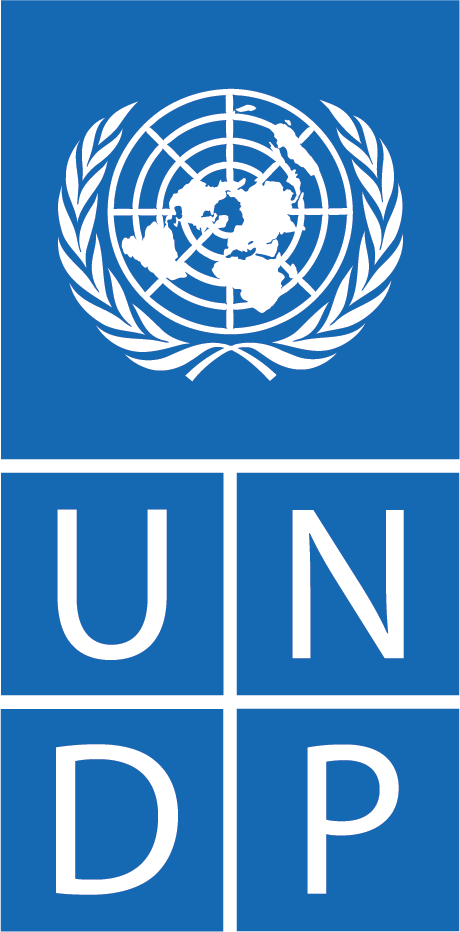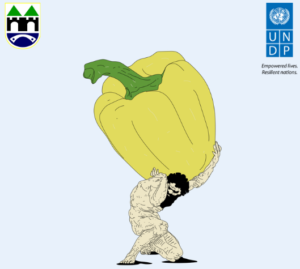
WE WANT YOUR IDEAS FOR SOLUTIONS!
The problem
Food waste has reached massive proportions across the planet with much of the food produced then wasted. So, what does this exactly mean? Wasted and lost food account for a 10th of all greenhouse gas emissions. 30% of food (1.3 billion tons) produced is lost or wasted globally.
The situation is Bosnia and Herzegovina is no better. Estimates show that nearly 500 tons of food waste end up at the landfill every day. In Canton Sarajevo, more than 12% of daily waste disposal at the landfill consists of discarded food. Consequences of this practice are multifold, from financial losses and impact on human health, to severe environmental impacts.
What were the first insights on the topic from collective thinking?
Within the Sarajevo Unlimited 2019, we invited a diverse group of participants to join a collective brainstorming and map the root causes and triggers for the food waste problem in Bosnia and Herzegovina. These are the priority issues identified by the discussion:
- Consumer habits (food preparation, overbuying, portion control);
- Awareness and management practices in relation to the food waste;
- Regulatory framework insufficiencies (How should the legal system be adapted to be more receptive to food donations?)
The Challenge
The City of Sarajevo, in collaboration with the UNDP Accelerator Lab, is inviting ideas that can offer practical, scalable and innovative answer to the following challenge:
HOW MIGHT WE DISRUPT FOOD WASTE ROUTINES AND/OR TURN WASTE INTO AN OPPORTUNITY?
- Priority themes
Led by the intent to address the root causes for the food waste problem in the country, we invite ideas that tackle one or several of the following issues:
- Interventions in consumer habits that reduce or prevent wasting food,
- Awareness raising interventions on meal planning, shopping and cooking,
- Connecting the supply and demand – leave no meal behind!
- Solutions for food waste composting and disposal.
- Suggestions for interventions in the legal system that would make food donations easier.
How to structure your idea?
While you develop your idea, be prepared for a slightly unusual submission process. We are not only looking to receive ideas on paper. We would like to invite basic prototyping and testing of your idea already as you prepare the submission. So, to enter the Challenge, you need to present your idea (and ultimately make the entire ideation journey) based on the following points:
Key problem Explain what is the main issue you are trying to solve? What is the situation you want to change? (1/3 a page max.)
Solution hypothesis
Describe your solution hypothesis. Explaining how is it a game-changer? What will the observable and/or measurable change or outcome look like? What do you expect or hope will happen? (1/3 a page max.)
Make a prototype of your solution (Action needed!)
Make your idea real by developing a prototype of your solution. We welcome all types of design forms – products, services, and environments. Move from an idea in your mind to a physical prototype: it can be a model of physical product, mockup of a future app, interior design of a public kitchen… we just want to see how your idea materialize. Please provide a photo/video/electronic product of your prototype by downloading in the “Photos/videos” section.
Test your prototype (Action needed!)
Test your prototype and gather feedback. Share your prototype with the people who would use your solution and then share with us: what data did you collect? What did you learn from the testing of your prototype? What assumptions were right and what – wrong?
Sustainability and indicative resources
Show how your solution is received by the people who are to use it. Is it viable for and sustainable? How technically feasible is it? How much would its implementation cost?
And remember, always think about those for whom you develop your solution. In other words: with the people for the people.
Who can submit ideas?
Applications are open to individuals, civil society organizations, academia, private sector, media.
Will there be a prize?
Yes. The best 3 ideas will receive both public recognition and promotion, as well as monetary award as follows:
1st place: USD 3,000
2nd place: USD 2,000
3rd place: USD 1,000
The prizes will be awarded to a single person or entity for best ideas and prototypes, and are not tied to the implementation of the idea beyond the Challenge.
How to submit your idea?
All ideas should be submitted at the on-line platform www.consul.sarajevo.ba.
How will applications be assessed?
Applications will be reviewed by a team comprising representatives from the City of Sarajevo and the UNDP Accelerator Lab. Submissions will be judged on the following criteria:
- Quality – Meaningfully and constructively engages with at least one of the issues and priority themes outlined above to provide a plausible solution to the food waste challenge.
- Originality – Represents an innovative and unusual approach to addressing the challenge.
- Feasibility – It is possible to implement the idea in local circumstances and with local communities.
- Zero-waste – The solution offers ways to keep waste in use and to regenerate resources, breaking the current take-make-waste model.
What happens with the best ideas?
The UNDP Accelerator Lab in Bosnia and Herzegovina will include the best ideas in its portfolio of experiments and seek opportunities to test them further and potentially scale them up with the City of Sarajevo.



